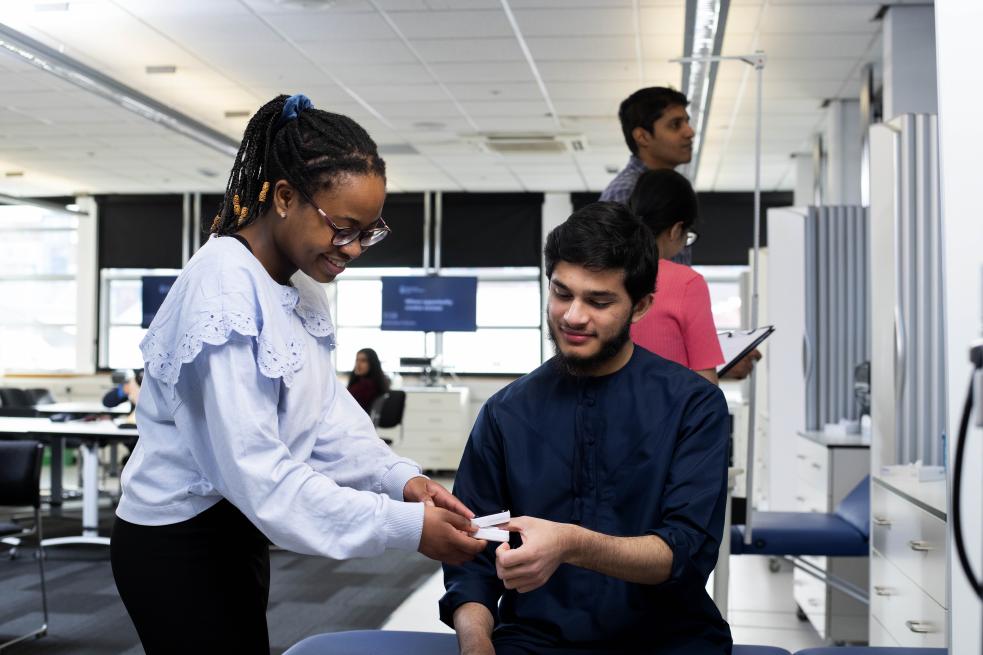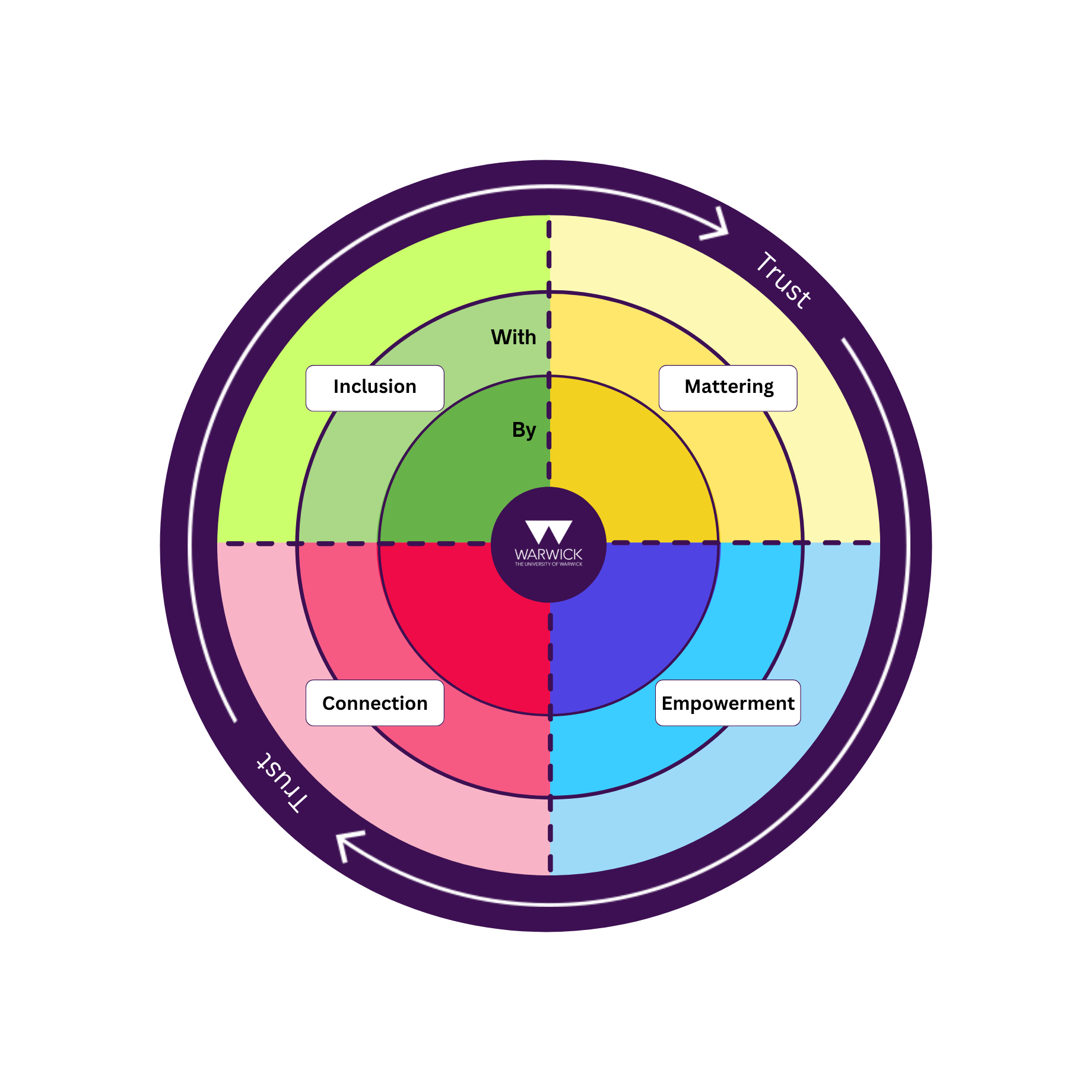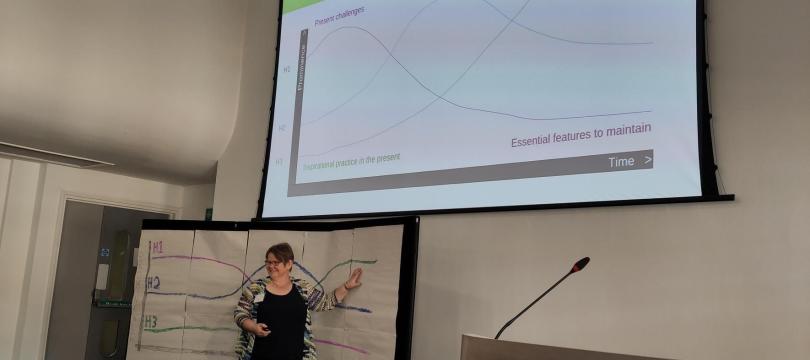Can You Create Belonging For People, Or Only With Them?

"It's when they've already decided what they're doing and want us to feel good about it."
That's how one student described university ‘consultation’ to us. It got us thinking about the gap between traditional student feedback and genuine co-design, building on previous work exploring levels of community participation.
We're Dr Tom Ritchie and Inca Hide-Wright from the University of Warwick. Our work on belonging has taught us that you can't create it for students – you build belonging with them through genuine partnership. c
Why This Matters Now
Post-pandemic, we're seeing unprecedented challenges with student engagement and mental health. Meanwhile, OfS conditions of registration and REF 2029's focus on people and culture are pushing institutions to demonstrate genuine progress. Belonging isn't just nice-to-have – it's what students, staff, and regulators expect, and need universities to get right.
The Problem with Participation
Most universities believe they're already engaging students meaningfully through surveys, focus groups, and student representatives. But much of what we call ‘engagement’ is really consultation where students provide feedback but have limited influence over decisions.
The uncomfortable truth? Many institutions invite students to participate, but their input is ignored, devalued, or used to legitimise decisions already made. Students recognise this immediately, eroding their trust and faith in the value of engaging at all.
Moving Beyond Consultation
The Building Belonging Learning Circle at Warwick demonstrates what genuine partnership looks like. Rather than working only with students, it brings together students and staff as equal co-designers.
We co-created the University of Warwick Belonging Framework, which draws on four elements - Inclusion, Mattering, Empowerment, and Connection – with Trust as the foundation. The framework also recognises different participation types: For (doing things for the audience), With (in partnership), and By (led by the audience).
 Figure One: The Warwick Belonging Framework, built by students and staff in partnership
Figure One: The Warwick Belonging Framework, built by students and staff in partnership
A breakthrough came when working with an academic staff member and a student realised, they'd both felt excluded in different ways, leading to insights neither would have reached alone. When the Framework was adopted into university strategies, it had genuine buy-in because students, academic, professional services, and external staff had all collaborated to develop and build it.
A Student's Journey
Inca's story shows what genuine partnership looks like. She came to me with ideas about belonging work, and rather than just consulting her, we worked together to create something entirely new. She was student co-lead on the initial project and then co-lead on the Learning Circle. As the work evolved, Inca transitioned into a staff role, bringing lived experience of both sides of the partnership. Inca has shared her perspectives below:
A great deal of what is branded ‘co-creation’ ends up being consultation which, as a student, feels tokenistic and is reflected in how University awards and recognition prioritise, if not solely focus on the staff and not the students even though, if it weren’t for student involvement, the prize would not be able to be won. This leads to frustration, lack of trust and disengagement. It makes you feel, as a student, like you are a vehicle for staff promotions rather than a valued member whose voice matters and who can be a changemaker in their own right.
Working in genuine partnership, and as a leader, on the Warwick Belonging Project has quite literally been life and career changing. It is because of this trust, faith and support that I grew in confidence, skills and knowledge which means I feel more able to empower and positively challenge others such that the change and progress continue to be made. I now bring these experiences into my role as staff – maintaining my openness and awareness of the barriers to engagement for students and staff and how I can do my part in creating spaces and opportunities that live the Building Belonging Framework.
For Inca, this work hasn’t been about ‘graduating’ from student to staff – it was recognition that authentic partnership creates opportunities that traditional consultation never could.
What We've Learned
Our co-design approach has shaped university-wide strategy and created a replicable framework being adopted elsewhere. We've seen people across Warwick and beyond apply it to everything from curriculum design to support services with student and staff spaces.
But genuine partnership requires significant commitment from both students and staff. We've hit institutional resistance, particularly when redistributing power challenges existing hierarchies. The time investment can be substantial, and it's not right for every situation.
Most fundamentally, it starts with building trust in principles and practices of working with others. The framework's ‘For, With, and By’ types have been particularly helpful – rather than defaulting to doing things for students, we can ask what should be done with them as partners, and what should be led by them entirely.
Scaling This Approach
The work is gaining international recognition. We're working with partners across the UK and internationally, including Monash University in Australia.
We're establishing a Centre for Belonging in Education to explore how authentic partnership can transform student and staff experiences across the sector. The Centre will bring together three interconnected areas: policy, practice, and research, creating space for conversations across and beyond higher education.
Questions for Your Context
- Where does your current approach to working with communities actually sit?
- What would it take to move from consultation to genuine partnership?
- Most importantly: what would authentic partnership look like in your context, and what's stopping you from experimenting with it?
Want to explore these ideas further? Contact Tom at Tom.Ritchie@warwick.ac.uk, Inca at Inca.O.Hide-Wright@warwick.ac.uk or visit our Building Belonging Framework to access practical resources and case studies.
Dr Tom Ritchie and Inca Hide-Wright work at the University of Warwick developing innovative approaches to student partnership and belonging. They lead the Building Belonging Learning Circle and are establishing the Centre for Belonging in Education.

